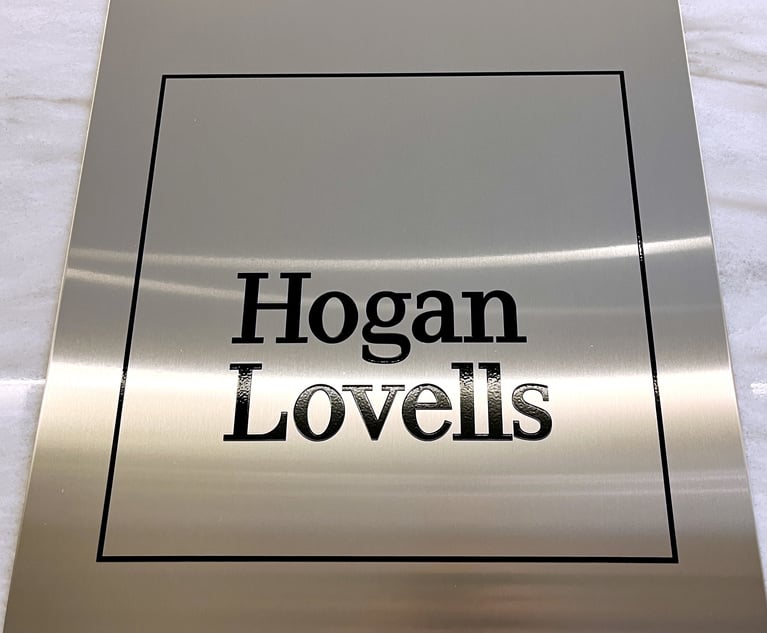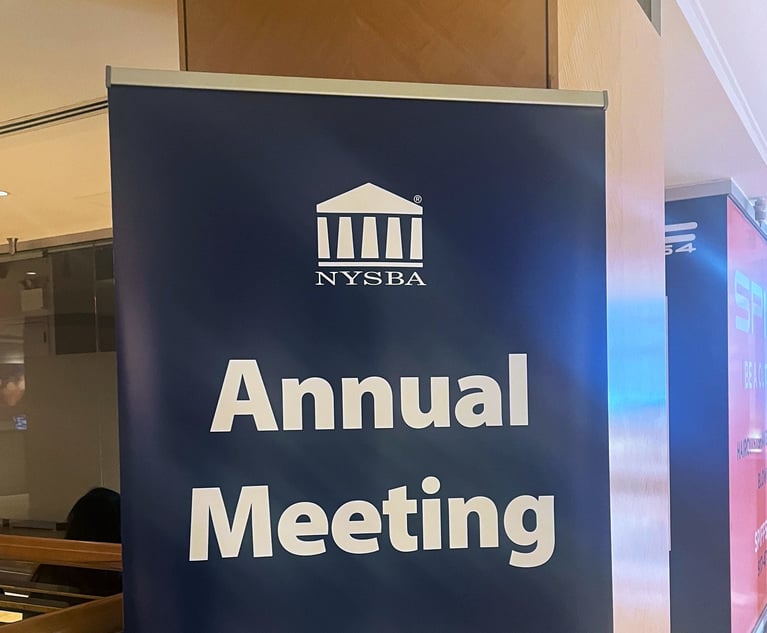Monsanto Asks Judge to Vacate $289M Roundup Verdict, Citing Lack of Evidence
Monsanto cited a 2017 ruling in a case involving Johnson & Johnson's powder, in which the judge vacated a $417 million verdict due to lack of evidence.
September 18, 2018 at 11:31 PM
5 minute read
 Plaintiff DeWayne “Lee” Johnson alleged that exposure to certain Monsanto glyphosate-based herbicides, including Roundup, caused him to develop non-Hodgkin lymphoma.
Plaintiff DeWayne “Lee” Johnson alleged that exposure to certain Monsanto glyphosate-based herbicides, including Roundup, caused him to develop non-Hodgkin lymphoma.
Monsanto Co. has asked a San Francisco Superior Court judge to toss a $289 million verdict, insisting the plaintiff's evidence failed to show that its herbicide Roundup caused non-Hodgkin lymphoma.
The Aug. 10 verdict came the first trial alleging a link between Monsanto's Roundup to cancer. The jury awarded $39.2 million in compensatory damages and $250 million in punitive damages to Dewayne “Lee” Johnson, diagnosed in 2014 with terminal non-Hodgkin lymphoma after using a similar Monsanto herbicide, Ranger Pro, as part of his job as a school groundskeeper.
On Tuesday, Monsanto filed two motions—one for a new trial, and one for judgment notwithstanding the verdict. Both argue that the verdict should be set aside or, alternatively, reduced.
“While we are sympathetic to Mr. Johnson and his family, glyphosate is not responsible for his illness, and the verdict in this case should be reversed or set aside,” Monsanto said in a statement, referring to the key ingredient in Roundup, glyphosate. “The plaintiff failed to prove at trial that glyphosate caused his cancer, and his own counsel and experts admitted that the epidemiological evidence—the best and most direct evidence on human causation—fell well below the causation standard required under California law.
Herbicides with glyphosate have been on the market for more than 40 years, the company said, and a “deep body of research” has found no link to cancer.
Johnson's trial was one of about 150 cases coordinated in California state courts and the first of more than 4,000 lawsuits nationwide to go to trial. At trial, plaintiffs lawyer R. Brent Wisner of Baum, Hedlund, Aristei & Goldman relied on a 2015 decision by the International Agency for Research on Cancer classifying glyphosate as a possible carcinogen.
But Monsanto's lawyers said that evidence failed to counter more than 800 studies and reviews, as well as the U.S. Environmental Protection Agency and regulatory agencies around the world, that concluded glyphosate was safe. A 2018 study by the National Cancer Institute also refuted any causal relationship.
Both motions frequently mentioned a 2017 ruling by Los Angeles Superior Court Judge Maren Nelson vacating a $417 million verdict against Johnson & Johnson in a trial alleging its baby powder caused a woman to get ovarian cancer. In her ruling, Nelson wrote, “the best that can be said is that there was (and is) an ongoing debate in the scientific and medical community about whether talc more probably than not causes ovarian cancer and thus giving rise to a duty to warn.”
“As in the Talcum case, given the lack of anything other than a hypothesis about causation and the nature of the epidemiological evidence, the court—in its role as the thirteenth juror—should order a new trial,” wrote Sandra Edwards of Farella Braun + Martel in the new trial motion.
Monsanto also argued that the damages were excessive and unconstitutional, particularly since there was no evidence of malice to warrant punitive damages. The jury also based the compensatory damages award on $1 million a year for future noneconomic losses for a healthy adult's life span of 33 years, rather than Johnson's actual life expectancy of less than two years.
“The jury imposed this massive award despite the absence of any evidence that anyone at Monsanto believed the formulation caused cancer or had any secret scientific information that would have changed the repeated conclusions of regulatory agencies that glyphosate-based herbicides are safe,” wrote Edwards. “Monsanto could not possibly have willingly and knowingly disregarded a risk or intended harm that it did not believe existed.”
The new trial motions also cited “significant prejudicial misconduct” by Wisner that “inflamed the jury,” such as calling on the jury to “change the world.”
Monsanto's lawyers have complained about Wisner before. Monsanto filed a flurry of motions before and during trial, including a motion for mistrial that cited a “series of calculated, intentional and improper statements during closing argument.”
Last week, a federal judge in the multidistrict litigation, which also is in San Francisco, allowed Wisner to stay on the lead plaintiffs team, even though Monsanto complained he had posted confidential documents to his firm's website. But Judge Vince Chhabria of the U.S. District Court for the Northern District of California warned Michael Baum, name partner at Baum Hedlund, that there would be “very, very severe sanctions and no warnings” if the firm engaged in misconduct.
In July, Monsanto lost its bid to toss the multidistrict litigation's 470 lawsuits on grounds that the plaintiffs couldn't prove glyphosate caused non-Hodgkin lymphoma. Chhabria rejected Monsanto's summary judgment motion but called it a “very close question.”
This content has been archived. It is available through our partners, LexisNexis® and Bloomberg Law.
To view this content, please continue to their sites.
Not a Lexis Subscriber?
Subscribe Now
Not a Bloomberg Law Subscriber?
Subscribe Now
NOT FOR REPRINT
© 2025 ALM Global, LLC, All Rights Reserved. Request academic re-use from www.copyright.com. All other uses, submit a request to [email protected]. For more information visit Asset & Logo Licensing.
You Might Like
View All
Hogan Lovells Hires Quinn Emanuel IP Litigator in San Francisco

Patreon Hit With Lawsuit for Allegedly Diverting Subscriber Data to Meta

Willkie Farr & Gallagher Drives Legal Challenge for Uber Against State's Rideshare Laws
5 minute read
NYSBA Annual Meeting: How In-House Counsel Navigate Gen AI Risk
Trending Stories
- 1Wells Fargo and Bank of America Agree to Pay Combined $60 Million to Settle SEC Probe
- 2Legaltech Rundown: Robin AI Releases In-house Tool, Epona Merges With JustiSolutions, and More
- 3As Lawmakers Eye Need for NY Supreme Court Posts, Could a Ballot Question Remove the Constitutional Limit?
- 4State Appellate Court Rejects Reasoning for Attorney's Removal From Conservatorship
- 5How Cohen Seglias Started With a Construction Practice and Turned It Into a Full-Service Law Firm
Who Got The Work
J. Brugh Lower of Gibbons has entered an appearance for industrial equipment supplier Devco Corporation in a pending trademark infringement lawsuit. The suit, accusing the defendant of selling knock-off Graco products, was filed Dec. 18 in New Jersey District Court by Rivkin Radler on behalf of Graco Inc. and Graco Minnesota. The case, assigned to U.S. District Judge Zahid N. Quraishi, is 3:24-cv-11294, Graco Inc. et al v. Devco Corporation.
Who Got The Work
Rebecca Maller-Stein and Kent A. Yalowitz of Arnold & Porter Kaye Scholer have entered their appearances for Hanaco Venture Capital and its executives, Lior Prosor and David Frankel, in a pending securities lawsuit. The action, filed on Dec. 24 in New York Southern District Court by Zell, Aron & Co. on behalf of Goldeneye Advisors, accuses the defendants of negligently and fraudulently managing the plaintiff's $1 million investment. The case, assigned to U.S. District Judge Vernon S. Broderick, is 1:24-cv-09918, Goldeneye Advisors, LLC v. Hanaco Venture Capital, Ltd. et al.
Who Got The Work
Attorneys from A&O Shearman has stepped in as defense counsel for Toronto-Dominion Bank and other defendants in a pending securities class action. The suit, filed Dec. 11 in New York Southern District Court by Bleichmar Fonti & Auld, accuses the defendants of concealing the bank's 'pervasive' deficiencies in regards to its compliance with the Bank Secrecy Act and the quality of its anti-money laundering controls. The case, assigned to U.S. District Judge Arun Subramanian, is 1:24-cv-09445, Gonzalez v. The Toronto-Dominion Bank et al.
Who Got The Work
Crown Castle International, a Pennsylvania company providing shared communications infrastructure, has turned to Luke D. Wolf of Gordon Rees Scully Mansukhani to fend off a pending breach-of-contract lawsuit. The court action, filed Nov. 25 in Michigan Eastern District Court by Hooper Hathaway PC on behalf of The Town Residences LLC, accuses Crown Castle of failing to transfer approximately $30,000 in utility payments from T-Mobile in breach of a roof-top lease and assignment agreement. The case, assigned to U.S. District Judge Susan K. Declercq, is 2:24-cv-13131, The Town Residences LLC v. T-Mobile US, Inc. et al.
Who Got The Work
Wilfred P. Coronato and Daniel M. Schwartz of McCarter & English have stepped in as defense counsel to Electrolux Home Products Inc. in a pending product liability lawsuit. The court action, filed Nov. 26 in New York Eastern District Court by Poulos Lopiccolo PC and Nagel Rice LLP on behalf of David Stern, alleges that the defendant's refrigerators’ drawers and shelving repeatedly break and fall apart within months after purchase. The case, assigned to U.S. District Judge Joan M. Azrack, is 2:24-cv-08204, Stern v. Electrolux Home Products, Inc.
Featured Firms
Law Offices of Gary Martin Hays & Associates, P.C.
(470) 294-1674
Law Offices of Mark E. Salomone
(857) 444-6468
Smith & Hassler
(713) 739-1250






